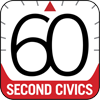Nationwide - February is here again, and Black History month is being celebrated all around the country and even in some parts of the world. Although the shortest month of the year, February has been chosen as the official month of the year to pay tribute to famous African Americans who contributed to society.
But actions speak louder than words, and so many organizations and companies have launched various scholarship funds for African American and other minority students. Collectively, the scholarships give away millions in much needed college funding.
Here are the top 10 Black History month scholarships for this year:
#1 - Steve Harvey Foundation/ Coca-Cola Pay It Forward Scholarship Program: Offers scholarship awards and once-in-a-lifetime apprenticeship experiences to African American youth looking to pave the way for their futures. Deadline is in March 2015. Learn more at www.scholarshipsonline.org/2014/01/coca-cola-pay-it-forward-scholarship-program.html
#2 - "Selma" Speech and Essay Scholarship Contest: Inspired by the recent film released by Paramount Pictures, this scholarship is open to U.S. high school students ages 14-18 who are currently enrolled in a public, private or parochial high school or home study program in the United States and its territories. Deadline is in February 2015. Learn more at www.scholarshipsonline.org/2015/01/selma-speech-and-essay-contest.html
#3 - 100 Black Men of America Future Leader Scholarship Program: Open to high school seniors as well as college freshmen, sophomores, juniors and seniors. The scholarship is based on academic achievement and community service. Deadline is in February 2015. Learn more at www.scholarshipsonline.org/2013/12/100-black-men-of-america-future-leader.html
#4 - Regions Riding Forward Black History Month Scholarship: Funded by Regions Bank (located in 16 states), this program awards scholarships each year to high school students and college students. Interested students may apply by writing an essay about African-Americans who have inspired them. Deadline is in February 2015. Learn more at www.scholarshipsonline.org/2014/01/regions-riding-forward-black-history.html
#5 - Jackie Robinson Foundation Scholarship: For minority high school students in the United States. In addition to a financial grant, the foundation also provides its scholars with mentoring and leadership development opportunities, and internships. Deadline is in February 2015. Learn more at www.scholarshipsonline.org/2012/03/jackie-robinson-foundation-scholarship.html
#6 - GEICO Achievement Award Program: Helps current college students who are sophomores and juniors earn scholarship money to complete their education. Eligible students must be enrolled in a business, computer science, or mathematics program. Deadline is in February 2015. Learn more at www.scholarshipsonline.org/2013/01/geico-achievement-award-program.html
#7 - Buick Achiever's Scholarship Program: Designed to give the financial assistance to student leaders, who can not afford to attend college. Funded by the GM Foundation, the program annually gives away 100 renewable scholarship awards and 1,000 non-renewable scholarship awards. Deadline is in February 2015. Learn more at www.scholarshipsonline.org/2012/04/buick-achievers-scholarship-program.html
#8 - National Association of Black Journalists Scholarships: Offered to students interested in a career in journalism. The scholarships are for high school students and undergraduate college students who are planning to enroll or currently enrolled in college full-time and majoring in journalism. Deadline is in February 2015. Learn more at www.scholarshipsonline.org/2014/05/nabj-national-association-black-journalists-scholarships.html
#9 - United Negro College Fund (UNCF) Scholarships: Provides extraordinary amounts of scholarship opportunities for minority students with financial need. Scholarships include educational assistance for students attending participating Historically Black Colleges or Universities (HBCU) and other colleges as well. Deadline is in February 2015. Learn more at www.scholarshipsonline.org/2014/04/united-negro-college-fund-uncf.html
#10 - Kroger "I Can Make History" Contest: Open to elementary, middle school, and high school students, grades 4th through 12th, this contest will award more than $71,000 in prizes in the categories of art, essay, music and poetry. Deadline is in February 2015. Learn more at www.scholarshipsonline.org/2014/01/kroger-i-can-make-history-contest.html
To search and apply for hundreds of other 2015 scholarships, visit www.ScholarshipsOnline.org.
Source: Top 10 Black History Month Scholarships For February 2015. (2015, January 28). BlackNews.com. Retrieved from http://www.blacknews.com/news/top-10-black-history-month-scholarships-for-february-2015101.html#.VNJEhS4eYw0






